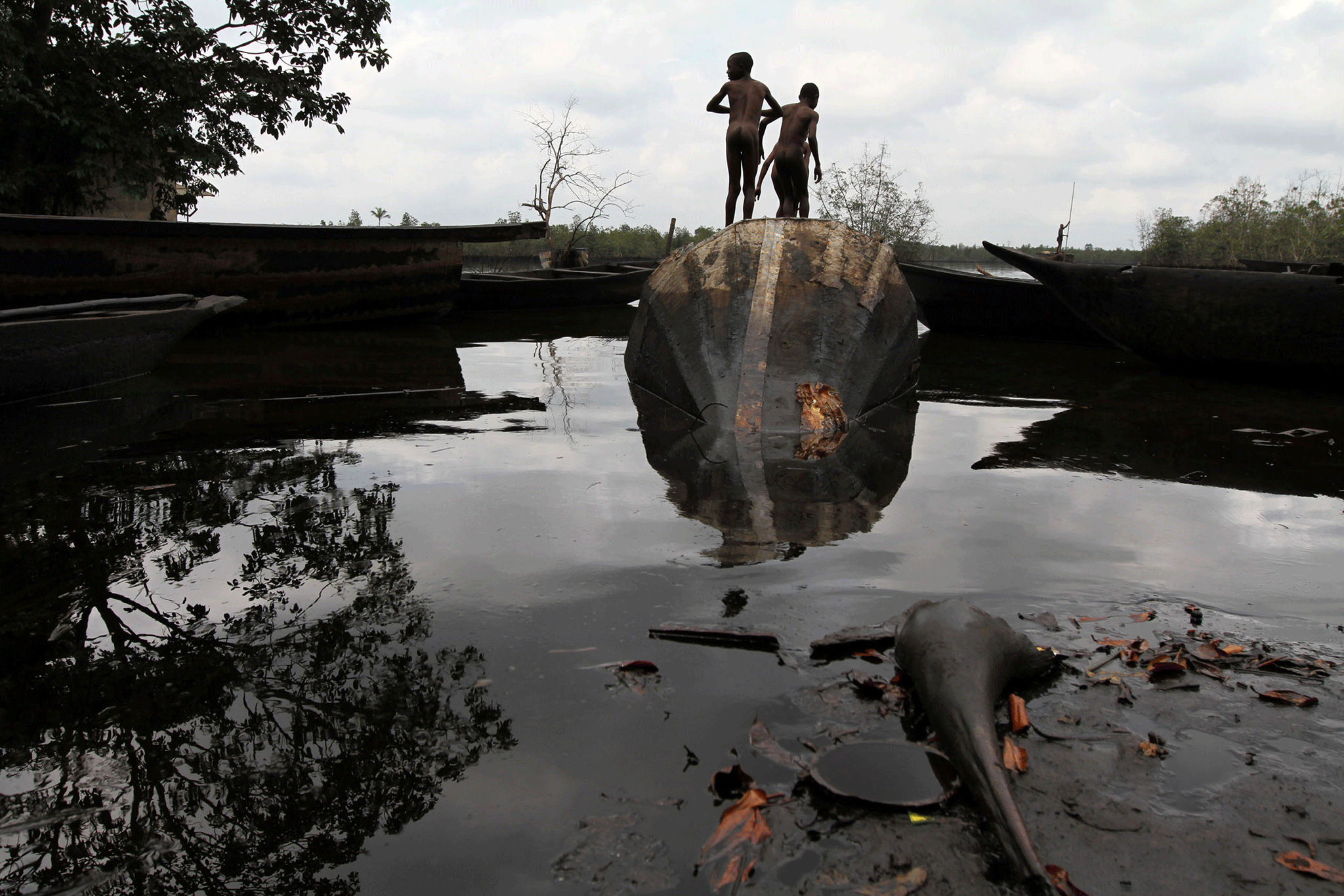Oil giant Shell sued by Nigerian widows for alleged complicity in executions of 'Ogoni nine'
'Shell and the military regime formed an alliance in the events leading to the deaths', a writ filed at a court in The Hague alleges

The widows of four men executed by Nigeria’s military regime in 1995 are suing oil giant Shell for allegedly aiding the army crackdown which led to their husbands’ deaths.
The women, led by one of the widows, Esther Kiobel, and supported by Amnesty International, filed a writ at a court in the Hague in which they are seeking an apology and unspecified damages.
Nine men, known as the Ogoni nine were hanged during the brutal military crackdown under the regime of dictator Sani Abacha. The hangings by a military court followed a peaceful uprising by 300,000 protesting against widespread environmental damage to the Niger Delta region caused by oil extraction. The incident provoked widespread international outcry.
The best known of the group was writer and protest leader Ken Saro-Wiwa.
In the early 1990s, the Nigerian government sought to counter local opposition to a Shell joint venture in the area, which brought in valuable revenues for the state. Shell, Britain’s largest company by market capitalisation, is also Nigeria’s biggest oil producer.
“Shell and the military regime formed an alliance in the events leading to the deaths of the Ogoni 9,” the writ said.
“Their relationship was one of mutual dependence: the Nigerian state was dependent on the income from oil that Shell generated; in turn, Shell was dependent on the benevolence and protection of the regime to pursue its activities in Nigeria and in this way realise a substantial part of its turnover.”
Audrey Gaughran, senior director of research at Amnesty International, said: “The executions of the Ogoni Nine shocked the world. Shell has been dodging accountability for its complicity in these deaths for more than twenty years but now, thanks to Esther Kiobel’s determination and bravery in taking on this corporate Goliath, the past is finally catching up with it.”
The Anglo-Dutch oil company has repeatedly denied being involved in the executions or the government's response to civil unrest.
“We have always denied, in the strongest possible terms, the allegations made by the plaintiffs in this tragic case,” Shell said in a statement.
“SPDC [Shell Petroleum Development Company of Nigeria] did not collude with the authorities to suppress community unrest and in no way encouraged or advocated any act of violence in Nigeria. In fact, the company believes that dialogue is the best way to resolve disputes.”
The company said it was “shocked and saddened” when it heard about the executions which it described as “tragic events”.
“The Shell Petroleum Development Company of Nigeria Limited appealed to the Nigerian government to grant clemency. To our deep regret, that appeal, and the appeals made by many others within and outside Nigeria, went unheard,” the company added.
In 2009, Shell agreed to pay a $15.5m out-of-court settlement to a group of relatives of the Ogoni nine.
Subscribe to Independent Premium to bookmark this article
Want to bookmark your favourite articles and stories to read or reference later? Start your Independent Premium subscription today.

Join our commenting forum
Join thought-provoking conversations, follow other Independent readers and see their replies